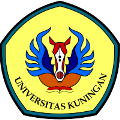Proyek Ekspedisi Nusantara: Edukasi Pancasila bagi Anak-Anak Desa Ngagrong Sebagai Alternatif Pendidikan di Tengah Pandemi Covid-19
Abstract
Ngagrong Village is a village that is currently in the yellow zone of the COVID-19 pandemic level, where all activities and access to various sectors are restricted. Access to the education sector is no exception, where schools in Ngagrong Village have their learning system transferred to online, so that Ngagrong Village children are not optimal in getting learning. Proyek Ekspedisi Nusantarat exists as an Independent Community Service Community, community that seeks to contribute to increasing the understanding and learning motivation of Ngagrong Village children through learning the philosophy of Pancasila with 3 main programs, namely learning to understand the meaning of Pancasila, the application of Pancasila values, and the relationship between Pancasila and Islamic activities. Through the implementation of the program from pre-activity, implementation of activities to post-activity, it can be concluded that the Proyek Ekspedisi Nusantara has an important contribution to increase knowledge and understanding in the application of Pancasila values in everyday life where the Ngagrong Village children are very enthusiastic during the process. their learning and learning motivation increased as the program was implemented, besides that they began to understand the meaning and application of the existing Pancasila values, plus the parents were happy because of the improvement of their children.
Keywords
Full Text:
PDFReferences
Kaelan, M. S. (2010). Pendidikan Pancasila, paradigma. Yogyakarta.
Kangas, M., Siklander, P., Randolph, J., & Ruokamo, H. (2017). Teachers’ engagement and students’ satisfaction with a playful learning environment. Teaching and Teacher Education, 63, 274–284.
Maftuh, B. (2008). Internalisasi nilai-nilai Pancasila dan nasionalisme melalui pendidikan kewarganegaraan. Jurnal Educationist, 2(2), 134–144.
Muttaqin, A. I., & Faishol, R. (2018). Pendampingan Pendidikan Non Formal Diposdaya Masjid Jami’an-Nur Desa Cluring Banyuwangi. ABDI KAMI: Jurnal Pengabdian Kepada Masyarakat, 1(1), 80–90.
Notoatmodjo, S. (2002). Metodologi Penelitian Kesehatan Jakarta: Rineka Cipta..(2007). Promosi Kesehatan Teori Dan Ilmu Perilaku. Jakarta: Rineka Cipta.
Qomariah, N. (2015). Pemberdayaan Masyarakat Desa Melalui Pengembangan “Soft Skill Pembuatan Krupuk Samiler” dalam Upaya Peningkatan Pendapatan Keluarga di Kabupaten Bondowoso. Jurnal Pengabdian Masyarakat Ipteks, 1(2).
Sari, A. U. W., Supriyanto, A., & Burhanuddin, B. (2016). Implementasi Supervisi Klinis di Sekolah Dasar dalam Meningkatkan Kompetensi Profesional Guru. Jurnal Pendidikan: Teori, Penelitian, Dan Pengembangan, 1(11), 2254–2260.
Saroni, M. (2011). Personal branding guru: Meningkatkan kualitas dan profesionalitas guru. Yogjakarta: Ar-Ruzz Media.
Undang-undang No. 20 Tahun 2003 tentang Sistem Pendidikan Nasional
Van der Kleij, F. M., Feskens, R. C. W., & Eggen, T. J. H. M. (2015). Effects of feedback in a computer-based learning environment on students’ learning outcomes: A meta-analysis. Review of Educational Research, 85(4), 475–511.
(https://covid19.boyolali.go.id/)
DOI: https://doi.org/10.25134/empowerment.v4i02.4578
Refbacks
- There are currently no refbacks.
Empowerment : Jurnal Pengabdian Masyarakat
ISSN 2598-2052 (online)
Organized by Faculty of Law, Universitas Kuningan, Indonesia.
Website : https://journal.uniku.ac.id/index.php/empowerment/index
Email : [email protected]
Address : Jalan Cut Nyak Dhien No.36A Kuningan, Jawa Barat, Indonesia.

EMPOWERMENT is licensed under a Creative Commons Attribution 4.0










